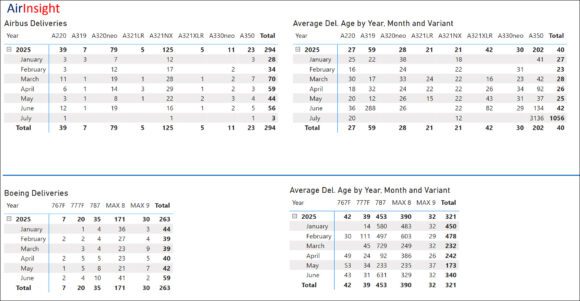 Airbus, like all OEMs, has had its share of program delays. But its newest aircraft, the A350, seems to be doing well in its testing. While the program ran into some delay earlier, Airbus appears to have worked through the big issues and testing is going well. The first test vehicle has over 330 hours already.
Airbus, like all OEMs, has had its share of program delays. But its newest aircraft, the A350, seems to be doing well in its testing. While the program ran into some delay earlier, Airbus appears to have worked through the big issues and testing is going well. The first test vehicle has over 330 hours already.
Today the second A350 test aircraft took to the skies (picture) only four months after the program’s first flight. For more details on F-WZGG use this link.
Airbus plans for five A350s for their test and certification program.
Also today, in Sydney, EADS CEO Tom Enders spoke at Australia’s National Aviation Press Club: “We are on track to deliver the first aircraft at the end of 2014. It’s going to be a great aircraft.” He went on to say “The 350 is a bit behind the 787 in terms of schedule,” and noted that 750 A350s have been sold. “I was quite pleased that we were trailing the 787 because by taking our time we could learn some of the lessons from that project,” he said.
Mr Enders’ optimism is well placed after last week’s announcement from JAL and this elicited comment: “We hope that other actors in Japan see that it’s worldwide, we have the same competition, and look seriously at Airbus products in the near future.” This optimism will be tested as an order from ANA, the other actor, is no sure thing. Boeing is not going to give up without a fight. As we have seen Boeing has already started to shake up its team, and we understand more may be to come.
But that does not take away from Airbus’ impressive management of the A350 program. Whereas Boeing got its 787 program started earlier, much of that program’s timing advantage was lost due to delays and technical hitches. Then came 747-8 program glitches, and Boeing was caught off guard with the success of the neo. (The American Airlines neo order was a shock) These events in turn meant the 777X program slowed down as engineers were moved to fixing 787 and 747-8 issues. Boeing has a lot on its plate, when one considers it is also developing the MAX.
Which, of course, meant Airbus benefited. Airbus was at the back end of painful lessons from the A400M and A380. Airbus therefore was able to deploy lessons from its own program upsets to ensure the A350 went much more smoothly. Boeing’s 777X program is now in catch up mode, it will be 2019 or 2020 before the first airplane is delivered. That will be up to six years after the A350.
JAL may have bought the A350 in order to benefit from its economics. That does not mean Boeing cannot respond by pricing 777s to blunt these advantages over the next half decade. As the A350 approaches EIS, don’t write off Boeing. The 777 program may Boeing’s most profitable, giving the company a lot of creative flexibility.
Views: 0




Boeing glory gone
Are there any A350 fuel consumption rumours leaking out from the testing yet?